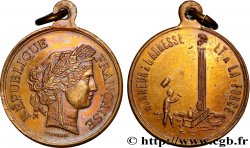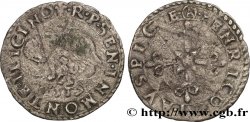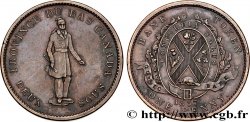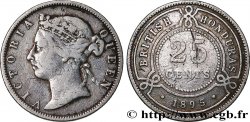Live auction - fjt_247782 - SPECTACLES : CIRQUE, THÉATRE, CINÉMA, JEUX, CONCERT Comédie française 1854
Sie müssen angeschlossen sein und von cgb.fr genehmigt werden, um in einer E-Auktion teilzunehmen.Melden Sie sich an, um zu wetten..Die Kontobestätigungen sind innerhalb von 48 Stunden nach Ihrer Anmeldung gemacht.Warten Sie nicht bis die letzten zwei Tage vor dem Abschluss eines Verkaufs, um Ihre Registrierung abzuschließen. Klickend "BIETEN" verpflichten Sie sich vertraglich, diesen Artikel zu kaufen und Sie nehmen ohne Reserve die allgemeinen Verkaufsbedingungen für den live auctions zu cgb.fr an.
Der Verkauf wird an der Zeit auf der Übersichtsseite angezeigt geschlossen werden. Angebote, die nach der Schließung Zeit empfangen sind, werden nicht gültig.
Bitte beachten Sie, dass die Fristen für die Einreichung Ihres Angebots auf unsere Server können variieren und es kann zur Ablehnung Ihres Angebots entstehen, wenn es in den letzten Sekunden des Verkaufs gesendet wird. Die Angebote sollen mit ganzer Zahl ausgeführt sein, Sie können Kommas oder des Punktes in Ihrem Angebot nicht erfassen. Bei Fragen klicken Sie hier, um einen Blick auf die FAQ Live-Auktionen.
Alle Gewinngebote unterliegen einem Aufschlag von 18 % für Verkaufskosten.
Alle Gewinngebote unterliegen einem Aufschlag von 18 % für Verkaufskosten.
| Schätzung : | 450 € |
| Preis : | 285 € |
| Höchstgebot : | 295 € |
| Verkaufsende : | 01 August 2017 19:22:19 |
| Bieter : | 2 Bieter |
Type : Comédie française
Datum: 1854
Metall : Silber
Durchmesser : 35 mm
Stempelstellung : 12 h.
Gewicht : 19,75 g.
Rand lisse
Punze : main ARGENT
Seltenheitsgrad : R2
Kommentare zum Erhaltungszustand:
Superbe patine un peu sombre avec reflets de couleur
N° im Nachschlagewerk :
Vorderseite
Titulatur der Vorderseite PIERRE CORNEILLE* J. . POQUELIN DE MOLIERE.
Beschreibung Vorderseite Bustes accolés à gauche de Corneille et de Molière à gauche ; signé BORREL 1854 au-dessous.
Rückseite
Titulatur der Rückseite COMEDIE FRANÇAISE 1658.
Beschreibung Rückseite Deux masques (Comédie et Tragédie) posés sur une base décorée d'un acacia, d'un miroir et d'une épée ; signé BORREL - 1854 au-dessous.
Kommentare
Ce jeton de la Comédie française ne commémore pas le bi-centenaire de la fondation (1658). En réalité, la Comédie française fut fondée à l’initiative de Louis XIV le 21 octobre 1680 par la réunion des troupes de l'Hôtel de Bourgogne et de celle de l'Hôtel de Guénégaud, elle même issue de la fusion de la troupe du Marais et de celle de Molière (+1673). Ce n'est qu'en 1791, à l'instigation de Talma que les comédiens rejoignent le théâtre de la rue de Richelieu, devenu la Comédie française.
Ce jeton rappelle en réalité un moment de la carrière de Molière où, comme le raconte sa biographie à http://fr.wikipedia.org/wiki/Moli%C3%A8re , il va, en 1658, recevoir la protection de Monsieur, frère du Roi, et jouer une pièce de Pierre Corneille.
Jean-Baptiste Poquelin, dit Molière, né à Paris, baptisé le 15 janvier 1622 et mort à Paris le 17 février 1673, est un dramaturge auteur de comédies, mais aussi un comédien et chef de troupe de théâtre français qui s'est illustré au début du règne de Louis XIV.
Issu d'une famille de petite bourgeoisie parisienne (son père occupe la charge de « tapissier du Roi »), Jean-Baptiste Poquelin fait des études dans un collège de Jésuites réputé jusqu'en 1639 puis commence des études de droit à Orléans. Il les abandonne en 1642, pour se consacrer au théâtre après la rencontre de Madeleine et Joseph Béjart avec qui il fonde « l'Illustre Théâtre » et prend le pseudonyme de Molière. Après la faillite, il quitte Paris et parcourt les différentes provinces de 1645 à 1658 en écrivant ses premières farces (L'Étourdi – Le dépit amoureux).
De retour à Paris en 1658, il obtient la protection du frère du roi : sa troupe prend le nom de « Troupe de Monsieur » et représente en particulier les tragédies de Pierre Corneille (Nicomède – Cinna).
This token of the Comédie Française does not commemorate the bicentenary of the foundation (1658). In reality, the Comédie Française was founded on the initiative of Louis XIV on October 21, 1680 by the union of the troupes of the Hôtel de Bourgogne and that of the Hôtel de Guénégaud, itself resulting from the merger of the troupe of the Marais and that of Molière (+1673). It was only in 1791, at Talma's instigation, that the actors joined the theatre on rue de Richelieu, which became the Comédie Française..
This token actually recalls a moment in Molière's career where, as his biography tells at http://fr. Wikipedia. org/wiki/Moli%C3%A8re, in 1658 he received the protection of Monsieur, brother of the King, and played a play by Pierre Corneille.
Jean-Baptiste Poquelin, known as Molière, born in Paris, baptized on January 15, 1622 and died in Paris on February 17, 1673, is a playwright and author of comedies, but also an actor and leader of a French theater troupe who distinguished himself at the beginning of the reign of Louis XIV.
Coming from a Parisian lower middle class family (his father held the position of \\\"upholsterer to the King\\\"), Jean-Baptiste Poquelin studied at a renowned Jesuit college until 1639 and then began studying law in Orléans.. He abandoned them in 1642 to devote himself to the theatre after meeting Madeleine and Joseph Béjart with whom he founded the \\\"Illustre Théâtre\\\" and took the pseudonym Molière.. After his bankruptcy, he left Paris and traveled through the different provinces from 1645 to 1658, writing his first farces (L'Étourdi – Le malgré amoureux).
Back in Paris in 1658, he obtained the protection of the king's brother: his troupe took the name of \\\"Troupe de Monsieur\\\" and performed in particular the tragedies of Pierre Corneille (Nicomède – Cinna)
Ce jeton rappelle en réalité un moment de la carrière de Molière où, comme le raconte sa biographie à http://fr.wikipedia.org/wiki/Moli%C3%A8re , il va, en 1658, recevoir la protection de Monsieur, frère du Roi, et jouer une pièce de Pierre Corneille.
Jean-Baptiste Poquelin, dit Molière, né à Paris, baptisé le 15 janvier 1622 et mort à Paris le 17 février 1673, est un dramaturge auteur de comédies, mais aussi un comédien et chef de troupe de théâtre français qui s'est illustré au début du règne de Louis XIV.
Issu d'une famille de petite bourgeoisie parisienne (son père occupe la charge de « tapissier du Roi »), Jean-Baptiste Poquelin fait des études dans un collège de Jésuites réputé jusqu'en 1639 puis commence des études de droit à Orléans. Il les abandonne en 1642, pour se consacrer au théâtre après la rencontre de Madeleine et Joseph Béjart avec qui il fonde « l'Illustre Théâtre » et prend le pseudonyme de Molière. Après la faillite, il quitte Paris et parcourt les différentes provinces de 1645 à 1658 en écrivant ses premières farces (L'Étourdi – Le dépit amoureux).
De retour à Paris en 1658, il obtient la protection du frère du roi : sa troupe prend le nom de « Troupe de Monsieur » et représente en particulier les tragédies de Pierre Corneille (Nicomède – Cinna).
This token of the Comédie Française does not commemorate the bicentenary of the foundation (1658). In reality, the Comédie Française was founded on the initiative of Louis XIV on October 21, 1680 by the union of the troupes of the Hôtel de Bourgogne and that of the Hôtel de Guénégaud, itself resulting from the merger of the troupe of the Marais and that of Molière (+1673). It was only in 1791, at Talma's instigation, that the actors joined the theatre on rue de Richelieu, which became the Comédie Française..
This token actually recalls a moment in Molière's career where, as his biography tells at http://fr. Wikipedia. org/wiki/Moli%C3%A8re, in 1658 he received the protection of Monsieur, brother of the King, and played a play by Pierre Corneille.
Jean-Baptiste Poquelin, known as Molière, born in Paris, baptized on January 15, 1622 and died in Paris on February 17, 1673, is a playwright and author of comedies, but also an actor and leader of a French theater troupe who distinguished himself at the beginning of the reign of Louis XIV.
Coming from a Parisian lower middle class family (his father held the position of \\\"upholsterer to the King\\\"), Jean-Baptiste Poquelin studied at a renowned Jesuit college until 1639 and then began studying law in Orléans.. He abandoned them in 1642 to devote himself to the theatre after meeting Madeleine and Joseph Béjart with whom he founded the \\\"Illustre Théâtre\\\" and took the pseudonym Molière.. After his bankruptcy, he left Paris and traveled through the different provinces from 1645 to 1658, writing his first farces (L'Étourdi – Le malgré amoureux).
Back in Paris in 1658, he obtained the protection of the king's brother: his troupe took the name of \\\"Troupe de Monsieur\\\" and performed in particular the tragedies of Pierre Corneille (Nicomède – Cinna)







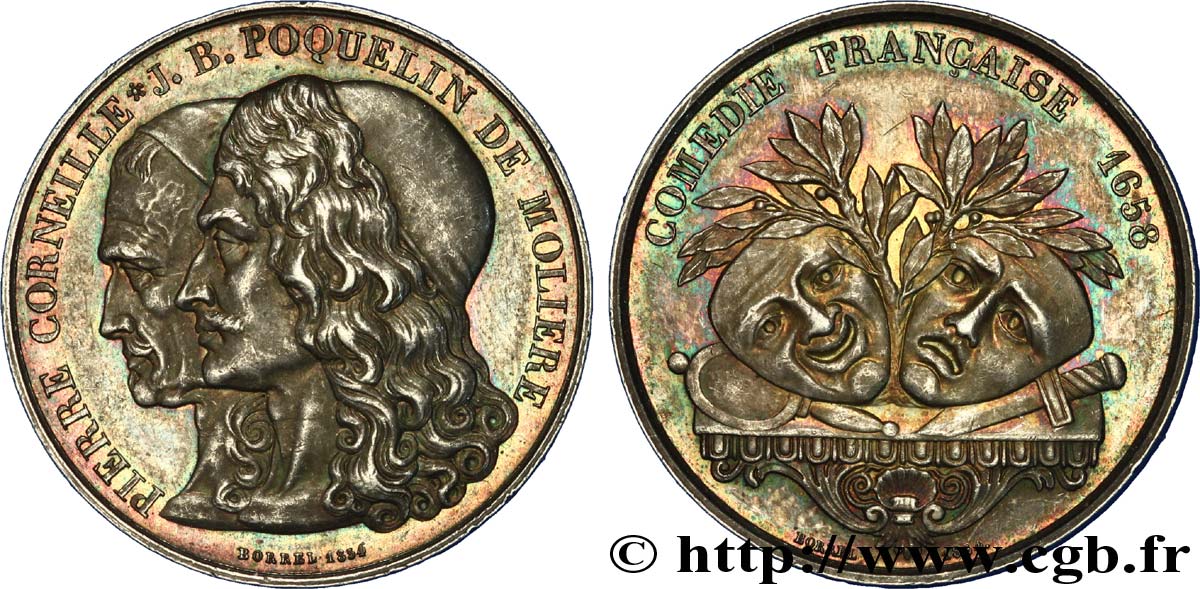
 Berichten über einen Fehler
Berichten über einen Fehler Die Seite drucken
Die Seite drucken Teilen meiner Auswahl
Teilen meiner Auswahl Stellen Sie eine Frage
Stellen Sie eine Frage Einlieferung/Verkauf
Einlieferung/Verkauf
 Details
Details